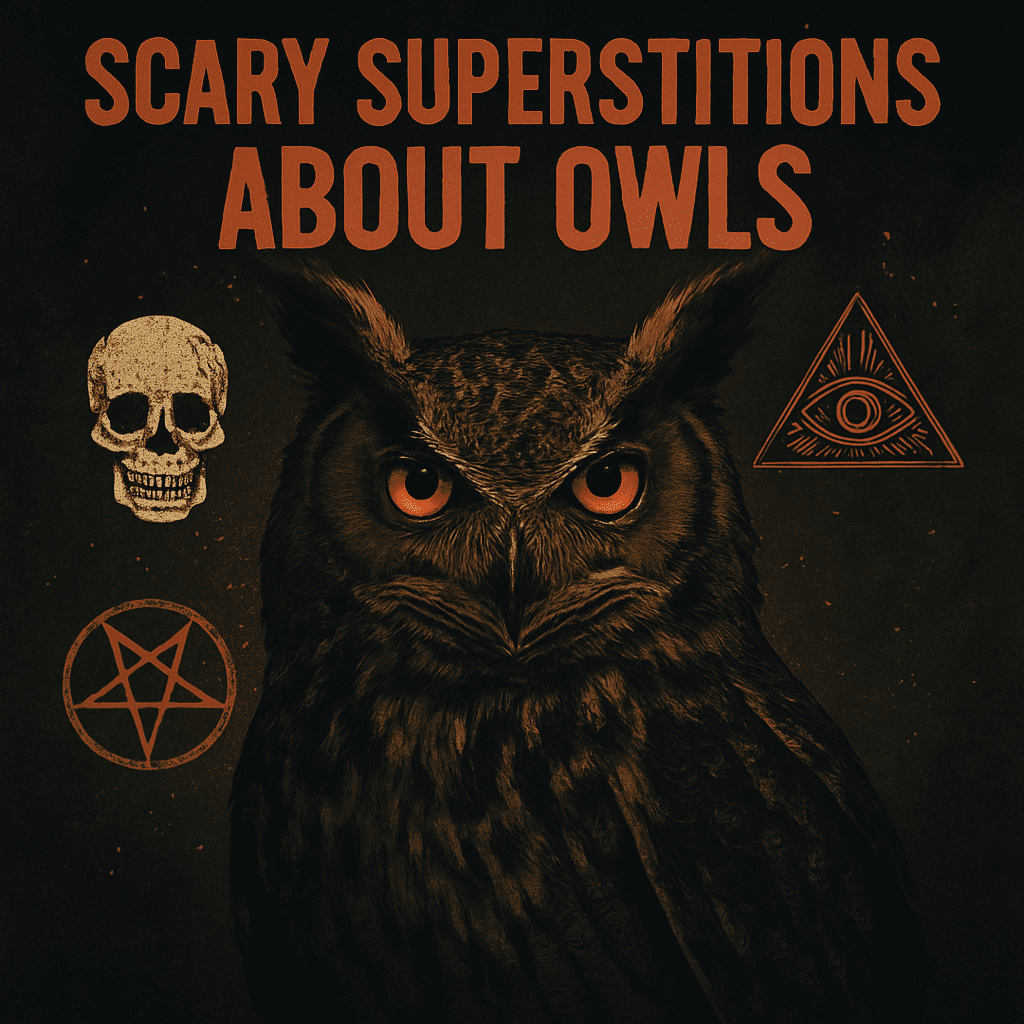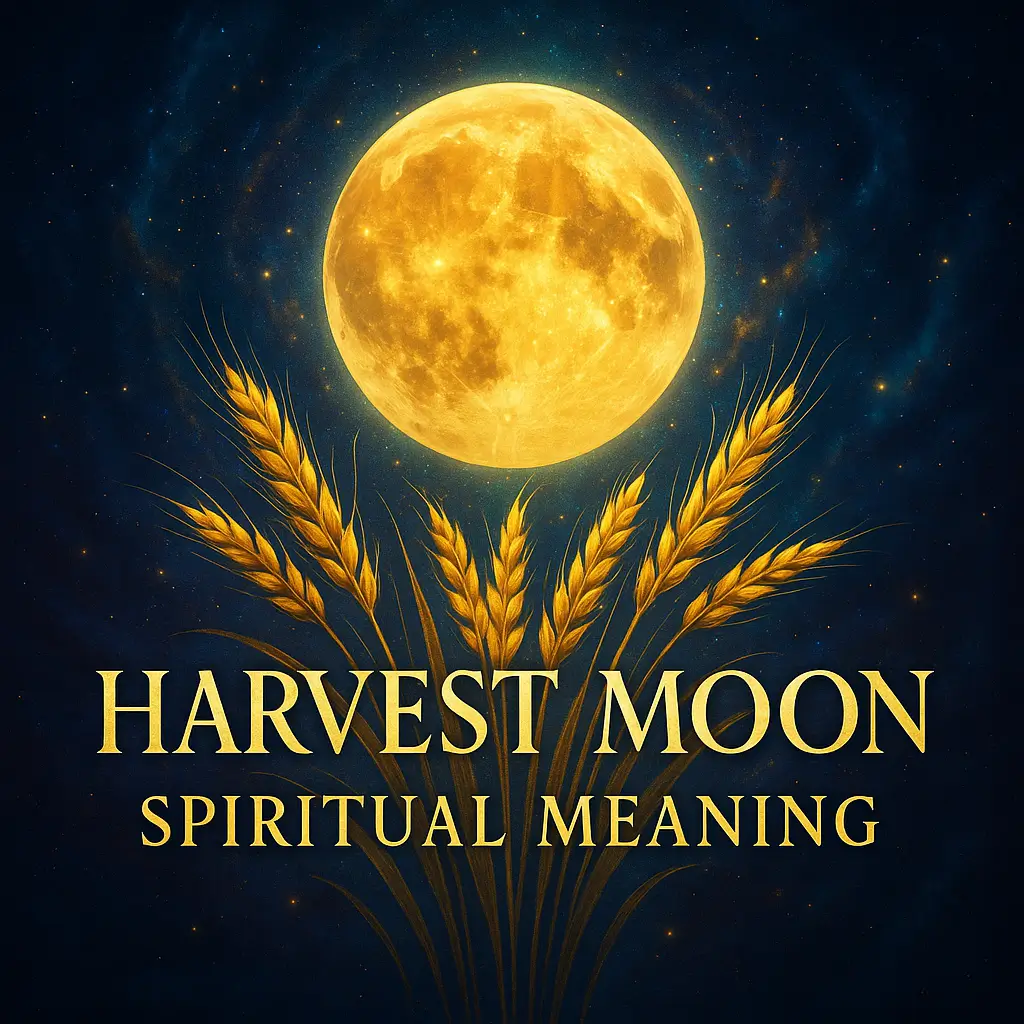Table of Contents
- 1 Key Takeaways
- 2 Keeping an eye out
- 3 Heavenly body
- 4 The evil genius
- 5 An angel of death owl superstition
- 6 Owl good luck superstition
- 7 Owl Omens Across Cultures: Good Luck or Bad Omen?
- 8 Top 10 Most Scary Superstitions About Owls
- 9 Conclusion
- 10 FAQ
- 10.1 What do owls symbolize across different cultures?
- 10.2 Why are owls considered mystical creatures?
- 10.3 Can owls really rotate their heads completely around?
- 10.4 What supernatural powers are owls believed to possess?
- 10.5 How do protective owl beliefs contrast with bad omen associations?
- 10.6 Why do owls feature in so many death-related superstitions?
- 10.7 What’s the significance of hearing an owl hoot?
Key Takeaways
- Throughout history, owls have been viewed with both reverence and fear, symbolizing wisdom in some cultures while being considered harbingers of death and misfortune in others.
- Many cultures believe owls possess supernatural abilities, including the power to see ghosts, communicate with the spirit world, and protect against evil spirits.
- The owl’s ability to rotate its head up to 135 degrees on each side has contributed to mystical beliefs about these birds imparting knowledge and alertness to those who encounter them.
- Despite their reputation as bad omens in many traditions, some cultures view owls as protective spirits that bring courage, intuition, and warnings of approaching danger.
- Owl good luck superstitions exist alongside the negative beliefs, with some cultures considering owl sightings or hoots near one’s home as signs of positive fortune and transformation.
Silent But Deadly: Owl Superstitions That Will Turn Your Head Around
Famous for their nocturnal nature, owls are no doubt one of the most interesting and mysterious living creatures. A regal symbol of silence, wisdom, and intelligence, countless cultures believe that these extremely brilliant birds are harbingers of misfortune, death, and most things troublesome. While there is a handful that sees them as agents of transformation, good judgment, and endurance, history has regarded these fascinating animals with a long list of beliefs that have surrounded owls with a somewhat dark and mystical charm.
Defined by Merriam-Webster as “a belief or way of behaving that is based on fear of the unknown and faith in magic or luck,” let us take a wide-eyed look at some of the most head-spinning owl superstitions.
“An owl is the wisest of all birds because the more it sees, the less it talks.”
Christie Watson, British writer
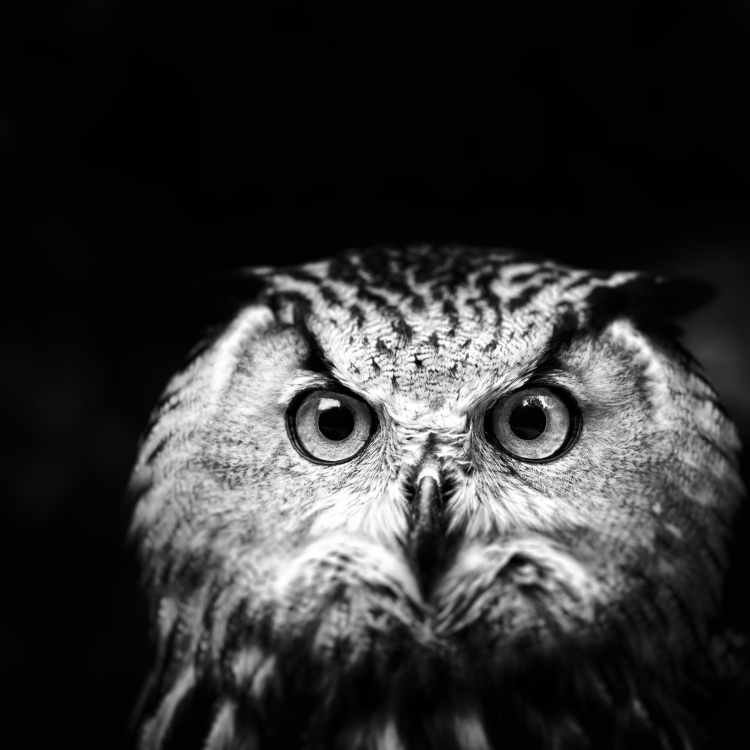
Superstitions are often based on tradition and folklore. Many superstitions have been around for centuries, passed down from one generation to the next. It can be difficult to know where some superstitions come from or what purpose they serve, but that doesn’t stop people from believing in them. Superstitions offer a bit of comfort in an uncertain world, and they allow people to tap into their belief system in order to bring themselves good luck or ward off bad luck. Whether you believe in them or not is up to you, but it’s hard not to at least appreciate the charm of these old-fashioned beliefs. See also our post about the owl meaning and symbolism.
Keeping an eye out
Cautious and elusive owls are frequently spoken about with fear and wonder which easily connect them to stories of magic, witchcraft, and the supernatural. A popular image of wisdom, transformation, mystery, and knowledge, they are widely accepted as an indication of death which ultimately brings about a fresh start as well as a higher perspective. Known for their ability to see clearly in the dark, owls are considered the eagles of the night. Often spotted silently perched on the roof of houses or barns, they are believed to be able to catch sight of ghosts in which that place would be deemed as haunted.
Perceived by many as a spy, nailing an owl to a door was seen as a way to protect property from evil spirits. In several countries, many folks believed that cooking and eating an owl’s egg and its eyes to ash and mixing them with a particular potion could help improve vision. They believed that not only will it enable us to see in the dark, but it can also enhance our awareness, understanding, and perception.
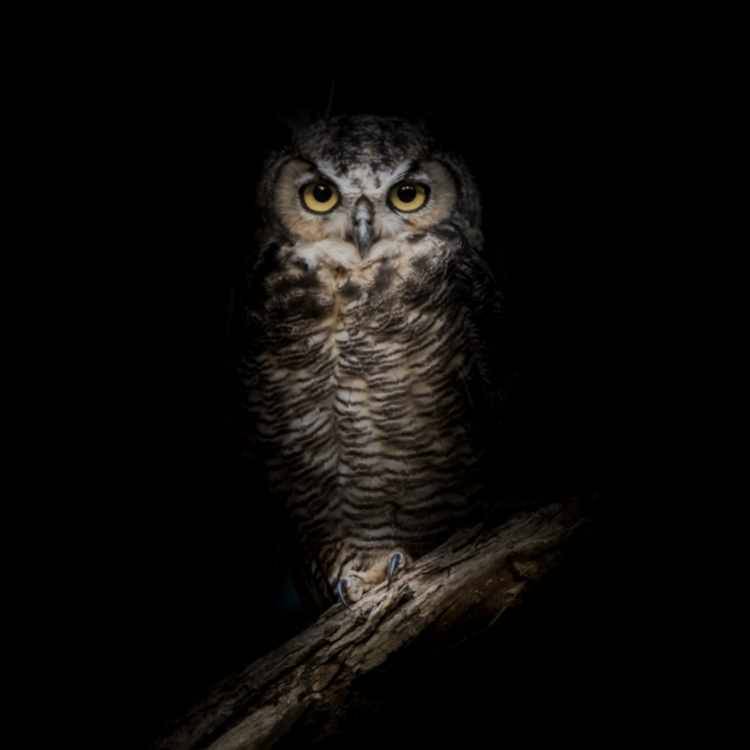
Heavenly body
Featuring a neck that can rotate 135 degrees on each side, the owl’s awesome ability to twist and twirl its neck extensively gave rise to the belief that if you are courageous enough to walk around a tree that an owl was perched on, it would follow you with its eyes and impart with you its extraordinary gift of alertness and knowledge. While there are numerous notions involving the parts of an owl, it has long been accepted that consuming owl broth or meat will not only alleviate seizures and several joint ailments but can also greatly enhance an individual’s sexual appetite. While some would say that simply having an owl’s feather or talon in possession provides the same effect, this amazing creature’s tuft can be used for protection and to ward off evil.
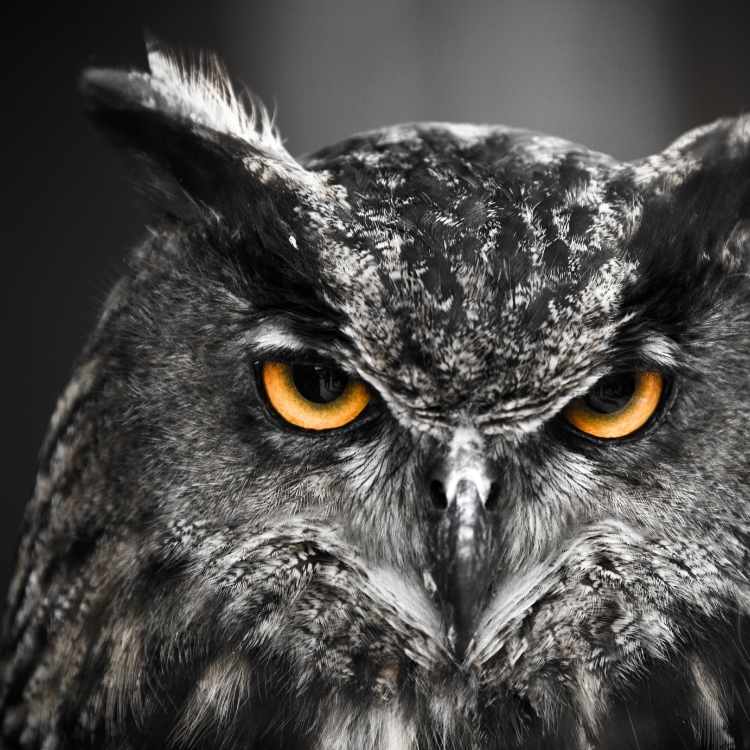
The evil genius
Throughout history, the owl has been respected as a spirit animal that provides wisdom, deep consciousness, and insightful knowledge. Having them as your guide, you are most likely to gain the ability to observe and grasp concepts that others may find difficult. While the owl enables you to see false impressions of reality as well as deceit, their direct connection with death and bad omens has stirred a myriad of civilizations to consider these knowledgeable birds as unclean and undesirable. Linked greatly with witchcraft, the Greeks and the Romans held the belief that witches could turn themselves into owls to fly off and perch themselves on the roof of their targeted house.
As sightings of an owl circling during the day remain to be an omen of misfortune, they are feared for having the ability to swoop down and carry off little babies. A far cry from those adorable birds that brought howling letters to the students of Hogwarts, these instinctive birds carried with them the notoriety of being messengers of the occult (find more symbols of the occult here.) (find more symbols of the occult here.) (find more symbols of the occult here.). However, several cultures noted them as guardians in the night that gave off a hoot to warn and possibly ward off the approach of evil.
An angel of death owl superstition
Silent yet predatory, many cultures believe that the owl is sacred. A group of North American Indians thought that owls carried with them the souls of people and therefore should be respected and never harmed. Connecting owls with women, they were believed to be the embodiment of a woman’s spirit and even perceived that a woman can turn into an owl. While some saw them as a manifestation of resentful women, there were a few who associated them with a protective spirit that would fly into our lives to lend us their innate courage and ferocity. By offering their guidance, wisdom, and gift of intuition, these wonderful birds warn us of approaching danger and help us overcome them by providing strength and positive change. However, their affinity with the dark has led many to view them as the god of the dead and protectors of the underworld.
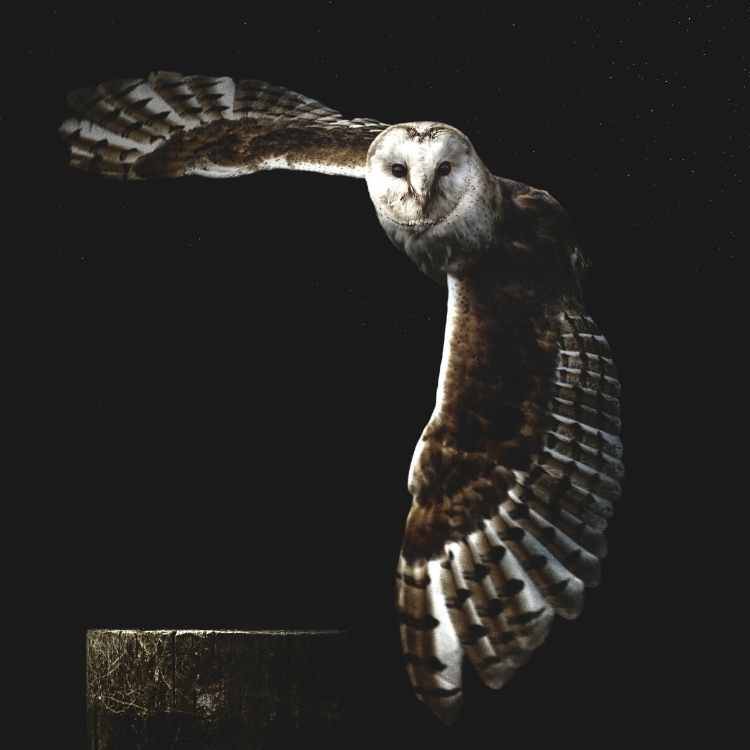
While several African countries conclude that the owl is a messenger for shamans which they use to communicate with the spirit world, the Apache people noted that seeing an owl in a dream represents an unforeseeable tragedy or death. As another legend suggests that an owl feather can be placed in a child’s bed to keep evil spirits away, the owl’s hoot and call symbolized that loss of life was at hand in which many cultures are moved to fear, avoid, or do away with them.
Owl good luck superstition
Owls have long been associated with wisdom, and many cultures have their own owl superstitions. Some people believe that owls can foretell the future, while others think that they bring good luck.
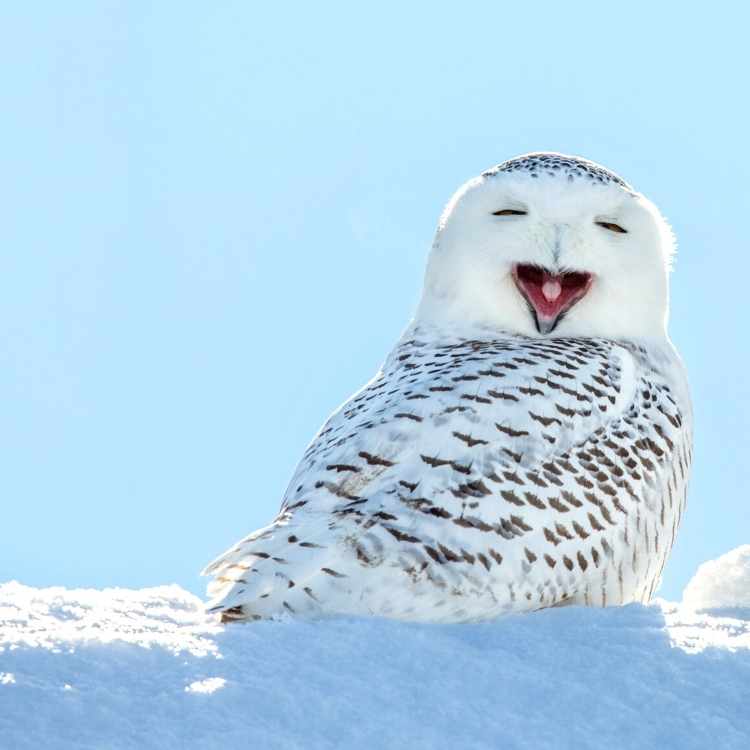
One that is often shared. It is said that if an owl hoots or flies near your home, it is a sign of good luck. Some people even go as far as to say that you should take any owl sighting as a good omen and be grateful for the lucky charm. Owls have been considered wise animals for centuries and are often thought to bring knowledge and understanding to those who see them. In many cultures, owls are also seen as symbols of death and transformation. This mix of meanings has led some people to believe that owls can either bless or curse a person, depending on their intent. Despite this somewhat ominous reputation, most people still consider owls to be lucky creatures overall. So next time you see an owl, be sure to give it a good luck wish!
Owl Omens Across Cultures: Good Luck or Bad Omen?
The debate about whether owls bring good luck or serve as bad omens continues to fascinate people worldwide. In Navajo traditions, owl superstitions are particularly strong, with these birds often considered messengers of impending death. Conversely, in parts of Asia, the owl is revered as a symbol of prosperity and fortune. This striking contrast highlights how cultural context shapes our perception of these mysterious nocturnal creatures.
Uncommon Owl Superstitions You Haven’t Heard
Beyond the common beliefs, many uncommon superstitions surround these birds. In South Africa, owl superstitions dictate that if an owl lands on your roof, it signifies someone close to you will pass away. Some cultures believe that owls laying down is a particularly disturbing sight, representing an imminent tragedy. The phenomenon of owl irruption—when owls appear in unusually large numbers in an area—is interpreted by some as nature’s warning of coming hardship or environmental change.
Daytime Sightings and Unusual Behaviors
Seeing an owl during the day superstition varies widely—while many consider it an ill omen, others interpret it as a message requiring immediate attention. The peculiar ability of owls to turn their head upside down (or nearly so) has spawned various beliefs about their connection to the supernatural world. Unlike the famous Houdini death trick that relied on illusion, this natural owl behavior genuinely appears otherworldly, fueling superstitious interpretations. If you’ve ever wondered why owls are considered bad luck, this unsettling physical capability certainly contributes to their eerie reputation.
Modern Interpretations of Owl Symbolism
In contemporary culture, the significance of owls has evolved. Valentine owls have become popular symbols of wisdom in love, while hitting an owl—even accidentally—is still considered extremely unlucky by many drivers. The question “are owls good or bad luck?” remains unresolved because these birds continue to embody duality: death and wisdom, misfortune and protection, darkness and insight. Perhaps most telling is the cross-cultural agreement that encountering an owl is never insignificant—these birds are universally acknowledged as powerful messengers, whether they bring warnings or blessings.
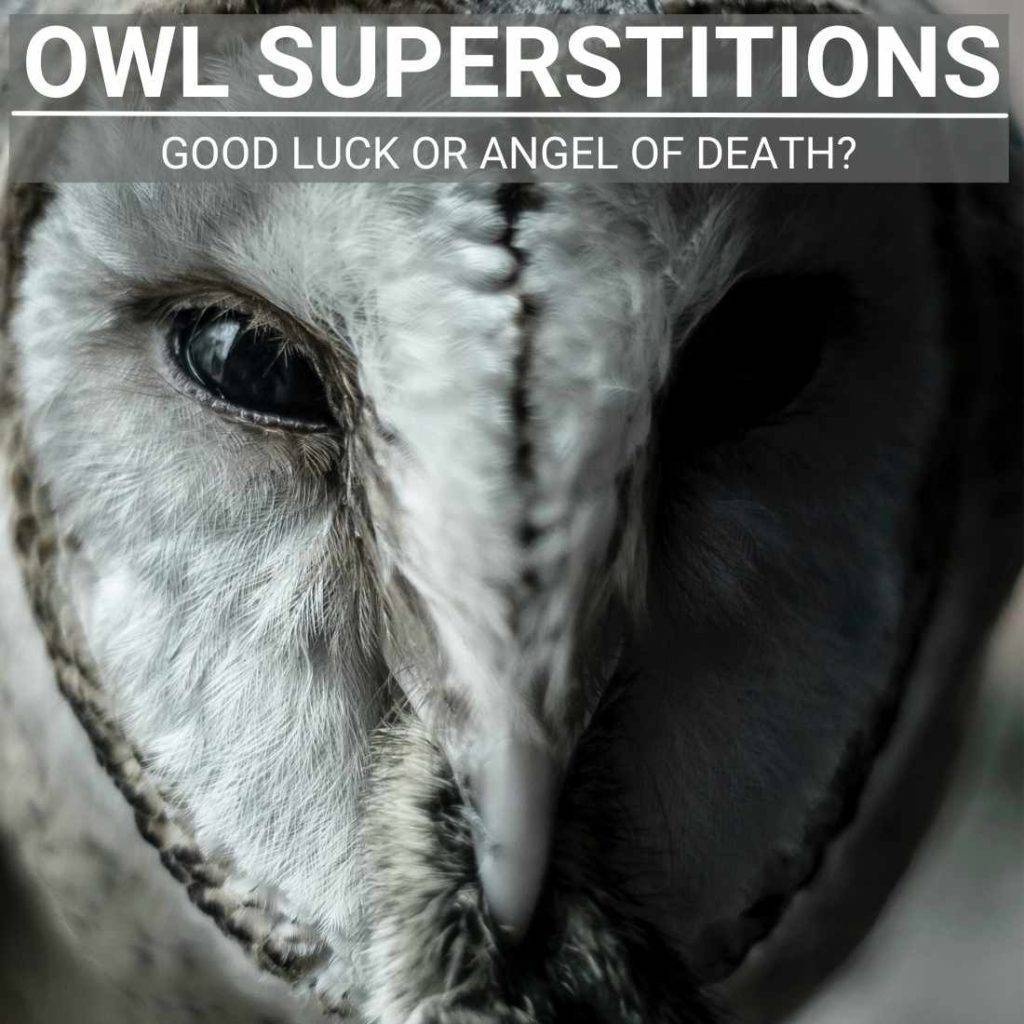
Top 10 Most Scary Superstitions About Owls
Owls have long been associated with wisdom—but just as often, they’ve symbolized fear, death, and the supernatural. Across cultures, their eerie calls and nocturnal habits have given rise to dark myths and chilling superstitions. Here are ten of the scariest owl beliefs from around the world:
| # | Superstition | Origin / Region |
|---|---|---|
| 1 | Owls are omens of death | Global (esp. Europe, Africa) |
| 2 | Hearing an owl means someone will die soon | Mexico, Appalachia |
| 3 | Owls carry souls of the dead | Native American tribes |
| 4 | An owl landing on your roof signals doom | Greece, Turkey |
| 5 | Owls are witches in disguise | Africa, medieval Europe |
| 6 | Owl hoots call demons | Caribbean, South America |
| 7 | Owls seen during the day are cursed | Eastern Europe |
| 8 | Owls blind those who look them in the eye | East Africa (read more) |
| 9 | Owls guard forbidden knowledge | Occult traditions |
| 10 | Killing an owl brings years of bad luck | Various global beliefs |
Conclusion
Considered to bring both good and bad luck, owls are decorated with a host of legends, myths, and folklore. As they thrive better in the dark, they are often thought to be creatures of mystery, high secrecy, and the unfamiliar which has led people to associate them with countless superstitious tales and fables that describe them as messengers of hardships and misfortune. While there are many more stories and beliefs related to these incredible spirit animals, this list of superstitions may be enough to keep you up at night.
FAQ
What do owls symbolize across different cultures?
Owls hold dual symbolism globally—representing wisdom and knowledge in some cultures while being feared as harbingers of death in others. Ancient Greeks associated owls with Athena and wisdom, while many Native American tribes viewed them as supernatural messengers connected to the spirit world.
Why are owls considered mystical creatures?
Owls’ mystical reputation stems from their nocturnal nature, silent flight, and remarkable head rotation abilities. These characteristics, combined with their penetrating gaze and eerie calls, have led many cultures to believe they possess supernatural abilities like seeing the invisible and traversing between worlds.
Can owls really rotate their heads completely around?
No, contrary to popular belief, owls cannot rotate their heads 360 degrees. However, they can turn their heads up to 270 degrees (135 degrees to each side) thanks to specialized blood vessels and extra neck vertebrae—an adaptation that has contributed significantly to their mysterious reputation.
What supernatural powers are owls believed to possess?
Many traditions credit owls with the ability to see ghosts, predict weather changes, foretell deaths, and communicate with spirits. Some cultures believe owl feathers or parts can transfer powers of night vision, stealth, and heightened intuition when used in ceremonial contexts.
How do protective owl beliefs contrast with bad omen associations?
While feared in many cultures, owls are also revered as protective spirits. In Japan, owl figurines (fukuro) are considered lucky talismans. Some European traditions suggest owls near homes ward off evil and illness. These protective beliefs exist alongside and sometimes within the same cultures that fear them.
Owls’ association with death stems from their nocturnal habits, silent hunting, and haunting calls. Historical observation linked owl appearances to subsequent deaths (though this correlation wasn’t causation). Their presence in cemeteries and abandoned places further strengthened this connection across different societies.
What’s the significance of hearing an owl hoot?
Interpretations of owl hoots vary dramatically by culture. Some believe hearing an owl hoot predicts imminent death or misfortune, while others consider it a protective warning or sign of coming changes. The number and timing of hoots often determine whether the omen is considered positive or negative.
